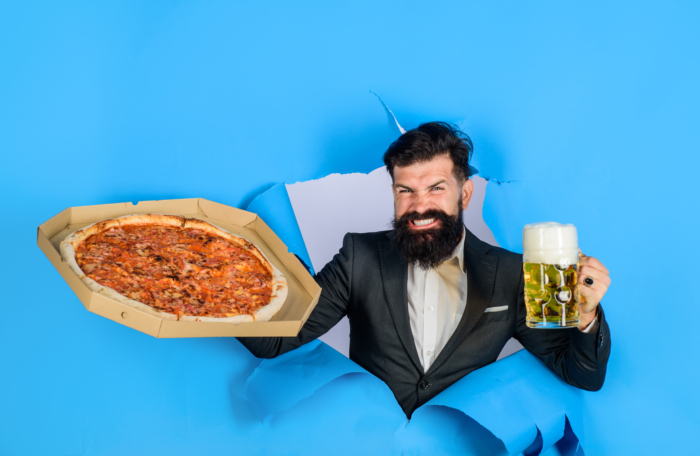New Hampshire allows beer (or wine) with your pizza delivery, at last
At the start of the COVID-19 shutdown last spring, restaurant customers wanted to order beer and wine with their delivery dinners. There was just one problem. That was illegal.
New Hampshire’s alcohol laws reserved beer and wine delivery exclusively for other types of businesses. This was such an obvious financial challenge for restaurants during the shutdown that fixing it became a top priority.
Relief came on March 18 when the governor issued Emergency Order 6, which let restaurants include beer and wine with food deliveries.
In the months that followed, no spike in alcohol problems was traced to these beer and wine deliveries. They proved so safe that during a February 16 public hearing on Senate Bill 66, a bill to make the change permanent, the New Hampshire Liquor Commission testified in favor.
With the support of the Liquor Commission, SB 66 passed and was signed into law on July 9.
The absence of any public health fallout from relaxing the ban raised an obvious question. Why did this prohibition exist in the first place?
As with so many business regulations, the state’s ban on restaurant alcohol delivery had nothing to do with public health or safety. It was part of a post-Prohibition alcohol distribution system crafted by legislators, regulators and businesses. The system’s rigid categories limit competition and confer cartel-like status on certain industries.
Under the new law, you can order beer or wine from a restaurant, but only with food. Why only with food?
In New Hampshire, delivering alcohol by itself has long been reserved for groceries and convenience stores. They can deliver beer and wine to customers in unlimited quantities, so the ban obviously is not a public health issue.
The prohibition resides in RSA 179:15, which allows liquor license holders to “transport and deliver anywhere in the state such beverages and wines ordered from and sold by them….” All liquor license holders “except on-premises licensees,” that is.
During the Feb. 16 public hearing, the New England Convenience Store & Energy Marketers Association testified against SB 66, arguing that it would “unnecessarily expand existing licensing categories.”
That comment shows the problem with the laws. The legal presumption is that the categories are natural and any change is unnecessary. In reality, the categories are both unnatural and unnecessary.
Consumers just want wine with their delivery dinner. Making them order dinner from the restaurant and wine from the supermarket never made sense.
Though restaurants now can deliver beer and wine, some nonsensical restrictions remain. The order must include food, and the beverages “shall be transported in their original, manufactured, sealed containers and shall consist of no greater than 192 ounces of malt beverage or 1.5 liters of sparkling or still wine.”
And if you want to order your favorite restaurant’s signature cocktail to go, well, you’re in the wrong state. New Hampshire is the only New England state not to allow cocktail delivery during or after the pandemic.
An amendment proposed by Sen. Kevin Cavanaugh, D-Manchester, to allow cocktail delivery did not survive.
It should not have taken a global pandemic to legalize restaurant delivery of beer and wine, just as it should not have taken a global pandemic to allow the practice of telemedicine or the decriminalization of home haircuts.
But regulatory regimes are incredibly hard to fix because so many people and organizations have vested interests in perpetuating them.
And with so few media outlets covering regulatory issues, consumers have no idea that the reason they couldn’t get a beer with their delivery burger was because lawmakers thought people should be forced to give that business to retail stores, not to restaurants, no matter how costly or inconvenient that might be.
The good news for consumers is that this dumb regulation is dumped. The bad news is that many others remain.



